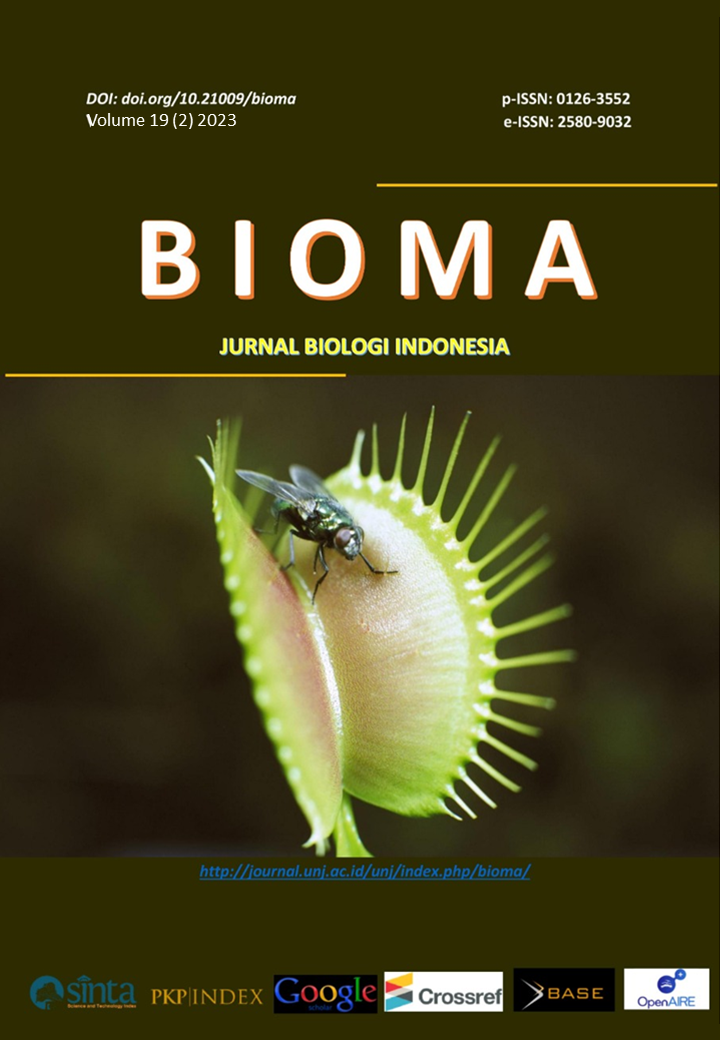ANALISIS PROFIL GEN IRT PADA TANAMAN PADI (Oryza sativa L.) DENGAN MENGGUNAKAN MARKA SSR DAN SNP TERHADAP KONDISI CEKAMAN BESI
DOI:
https://doi.org/10.21009/Bioma19(2).5Keywords:
Rice, FeSO4, SSR, SNPAbstract
Badan Pusat Statistik reported that rice production in 2019 decreased by 2.63 million tons (7.75 percent) when compared to 2018 production. Efforts to increase national rice production can be made by utilizing swamp land as rice production land. The high concentration of Fe in swamp land is an obstacle in its utilization. Selection of iron stress tolerant rice strains is needed . The purpose of this study was to determine the iron stress tolerant swamp rice strains and the relationship of tolerance levels in rice strains based on SSR (Simple Sequence Repeats) and SNP (Single Nucleotide Polymorphism) markers. The results showed that the rice strains tolerant to 1600 ppm FeSO4 stress was Siam Saba. Four of the 11 SSR markers used showed polymorphism, namely RM 125, RM 180, RM 320, RM 336. Cluster analysis showed that 4 rice strains were divided into 2 main groups with a similarity coefficient of 0.66. The first group consists of swamp rice (Siam Saba and Siam Tanggung) and the second group consists of paddy rice (Ciherang and INPARI 34). Analysis with SNP markers showed 12 SNP points. There was a deletion mutation at position 1007 bp and an insertion mutation at position 1151 bp.
Downloads
Published
How to Cite
Issue
Section
License
Copyright (c) 2023 Bioma

This work is licensed under a Creative Commons Attribution-NonCommercial 4.0 International License.


